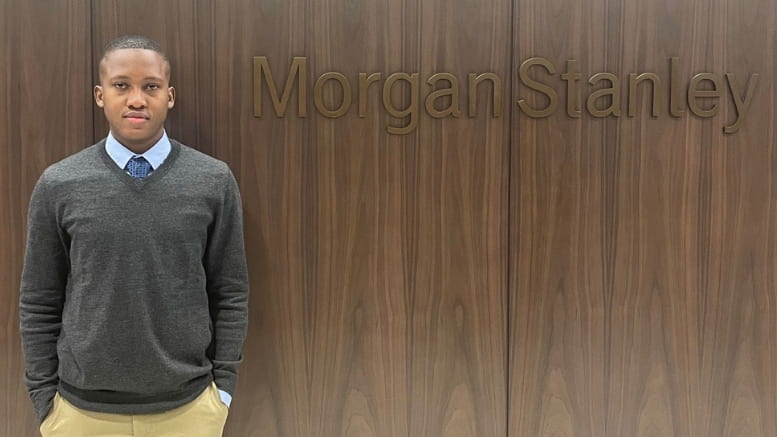“Reaching Your Dream” series tells stories of Northwestern alums who found their dream careers thanks to Chicago Field Studies (CFS), an academic internship program that matches over 500 students every year with over 250 employer partners. CFS participants receive guidance on choosing internships based on their passions and values, navigating applying and interviewing, and succeeding in the professional world. While interning, students process their experiences in weekly CFS seminars, where they reflect on the place of work in their lives and the role of their industry in society.
By Nina Wieda
Tebogo Kabelo ‘23 majored in economics at Northwestern and is currently an Analyst at Goldman Sachs. An international student from Botswana and the first in his family to graduate from college, Tebogo has relied on Chicago Field Studies to learn about American business culture.
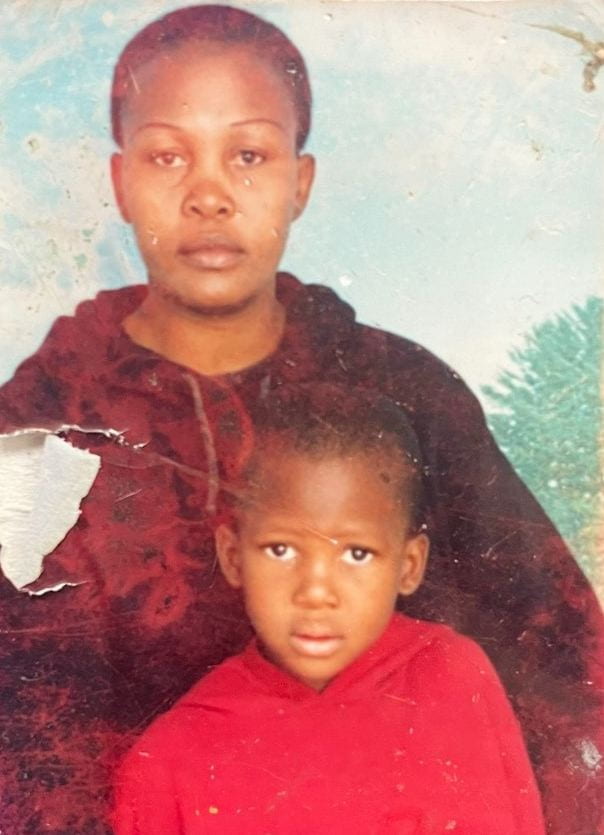
Tebogo as a child with his mother
Growing up in the village of Motokwe, Tebogo spoke the minority language Sekgalagadi, a language spoken by the inhabitants of the Kalahari desert in Botswana. In school, he started learning Setswana – the national language of Botswana. He only started learning English – his third language – at the age of 7. He spent his first few years of childhood making memories of wild gathering and chicken slaughtering with grandparents in the village, while his mother left the familiar comforts of rural life to work tirelessly to create a better life for the family in Gaborone, Botswana’s largest city located a six-hour bus ride from the village. When Tebogo was five, his mother bought a piece of land with an incomplete structure in Gaborone and brought her children and, eventually, her seven siblings to the city to provide them with better opportunities.
In a costly city, the only house Tebogo’s mother could afford was a half-finished two-bedroom house in a troubled neighborhood, which is where Tebogo grew up. He recalls, “I grew up in a desolate neighborhood where only a few break free, the only jobs known are street vending and gas station attendance, amidst the echoes of teenage pregnancy and drug abuse. Dreams die silently here, the cycle perpetuating to the next generation.” Tebogo shared a room with his brother and five uncles, but always found an opportunity to finish his homework and do well at school. “In my neighborhood, education is a distant dream sacrificed on the altar of necessity,” says Tebogo. Focusing on academics was not a popular activity in his neighborhood, so Tebogo’s success at school made him a bit of a local celebrity. “In my neighborhood, there are always many people in the streets, doing nothing in particular, sitting under a tree, playing music too loud. But they knew me, and they always supported me during prize-giving ceremonies. Their support was a testament of the strength of community and the power of shared aspirations. That’s why I continue to lend a helping hand wherever I can.”
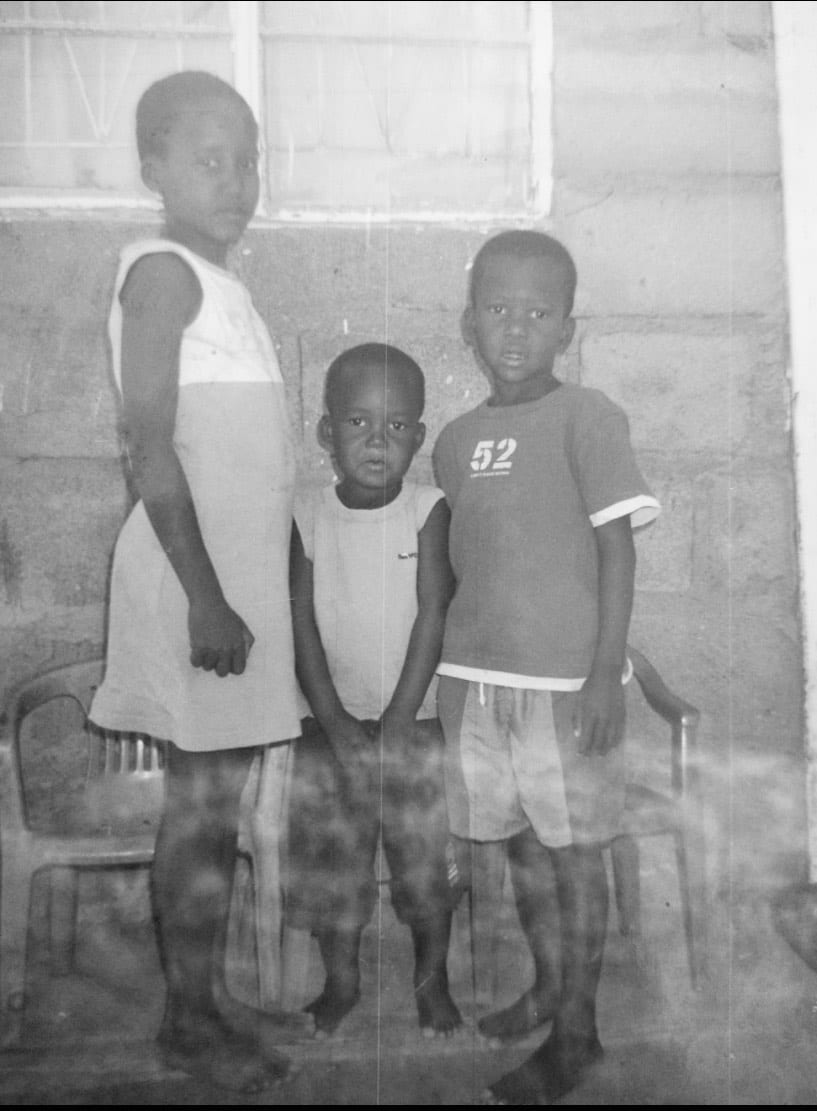
Tebogo and his siblings
Tebogo’s mother had dreams of becoming a nurse but had to put her dreams away to support her large family. In addition to working a few jobs, she also traveled to Durban and Johannesburg, South Africa, and brought back goods to sell. Tebogo did his best to pitch in, as well: already at the age of 7, he sold used bottles of liquor and soda for a cent each and spoke of wanting to be a businessman. As his mother toiled away on night shifts during weekends, Tebogo would slip out of the house to scour nightclubs for discarded liquor bottles. “While some might assume that these nightly excursions would lead to a path of self-destruction, I had a clear purpose in mind: business,” Tebogo smiles. “I learned skills such as negotiation, problem-solving, and adaptability that were later nurtured through internships and classes with professors like Nina Wieda.” His family did not have a TV set, but he and his siblings occasionally watched TV at a neighbor’s house, and Tebogo got to see the United States through the prism of music videos on MTV. At the time, he couldn’t even imagine that he’d be studying and working in that country.
The United States, however, is exactly where Tebogo’s talents took him. He got selected for a prestigious government-sponsored Top Achievers program that funded college prep education for 85 students selected from a pool of 39,000 candidates. Tebogo had to do exceptionally well on his A-level graduation exams to qualify for another scholarship to study abroad. He was preparing for his exams at the same time as he studied for his SAT and wrote his application essays. Few people in Botswana could help him, so he sought and received help from Botswana students who were already studying in the US. “I had a difficult childhood and quite a few challenges throughout my life, but there is no excuse for not working hard and not doing the things I wanted because there are supportive people around me.” The sleepless nights paid off; he secured the scholarship and got accepted into Northwestern.
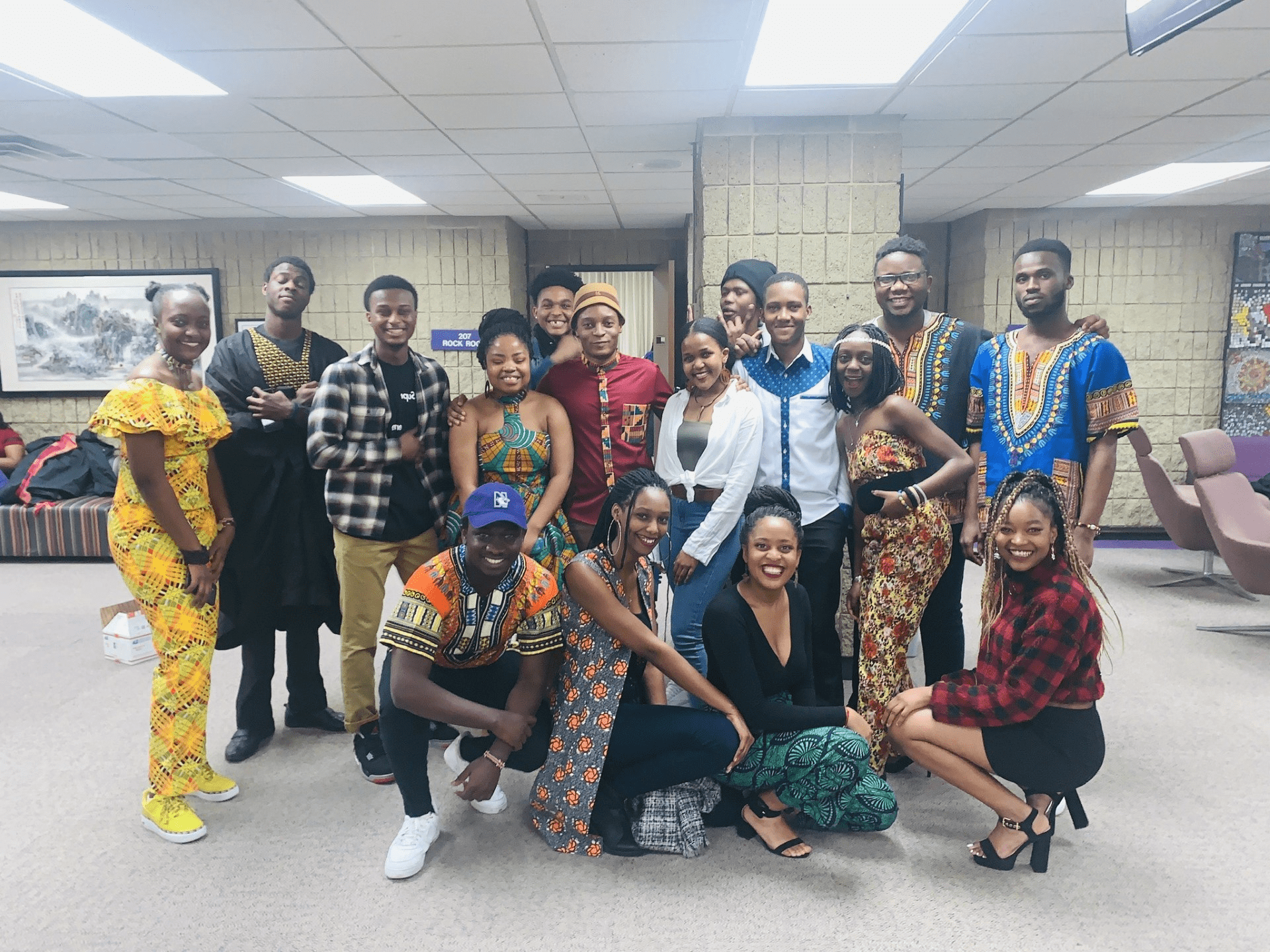
Tebogo pictured with the African Student Club
Tebogo pictured with the African Student Club“I had a very big culture shock when I arrived in the US,” Tebogo recalls. He was one of the first two students to arrive at Northwestern directly from Botswana. His freshman year got interrupted by the pandemic, and he spent a few months on campus as a part of a very small group of international students who stayed. After a lifetime of sharing his living space with so many people, the isolation of a deserted campus was difficult. After a while, he returned to Botswana and took remote Northwestern classes from there, still sharing the room in his mother’s house with his siblings. “I bought myself a little desk and a chair, set them up in the room, and connected to classes from there. I was afraid that I wouldn’t be able to keep up, because wi fi was really really bad, and electricity went out all the time,” Tebogo reminisces. His mother graciously moved from her room to allow him to study without distractions. “Seeing that made me even more determined to work hard,” Tebogo remembers.

Tebogo’s proud mother wearing his cap and gown at his Northwestern graduation
Coming back to the US after the pandemic, Tebogo saw it as an opportunity to start it all over again. “I didn’t know anything about American business culture; I had to learn it all from scratch.” Chicago Field Studies provided him with the support he needed. “I couldn’t have done it without the invaluable insights of my CFS adviser Karen Allen, the guidance of my mentor, Kevin Mendoza, and the unwavering support from Chris Cerimele at Balmoral Advisors.” From then, Tebogo was able to pursue further finance internships at Warner Brothers in Los Angeles. As he was getting close to his completion date, Karen Allen introduced him to Morgan Stanley where he continued to sharpen his skills and expand his network. A recent graduate, he secured a current full-time analyst position thanks to the Northwestern community. Beyond the college experience, CFS has remained a helpful community on which Tebogo can lean in his new country.
Last year, Tebogo’s mother visited him in Evanston on her first trip outside of Southern Africa. Tebogo smiles as he remembers his mother’s reaction to the United States, “She loved the city lights and she loved the lake. She loved the fact that there’s so much freedom here, that you could literally be anything you want. She talked about how if she lived here, she’d start her own business.” For now, she watches her son thrive in a big new place where got thanks to his talent and a little support from helpful people along the way.
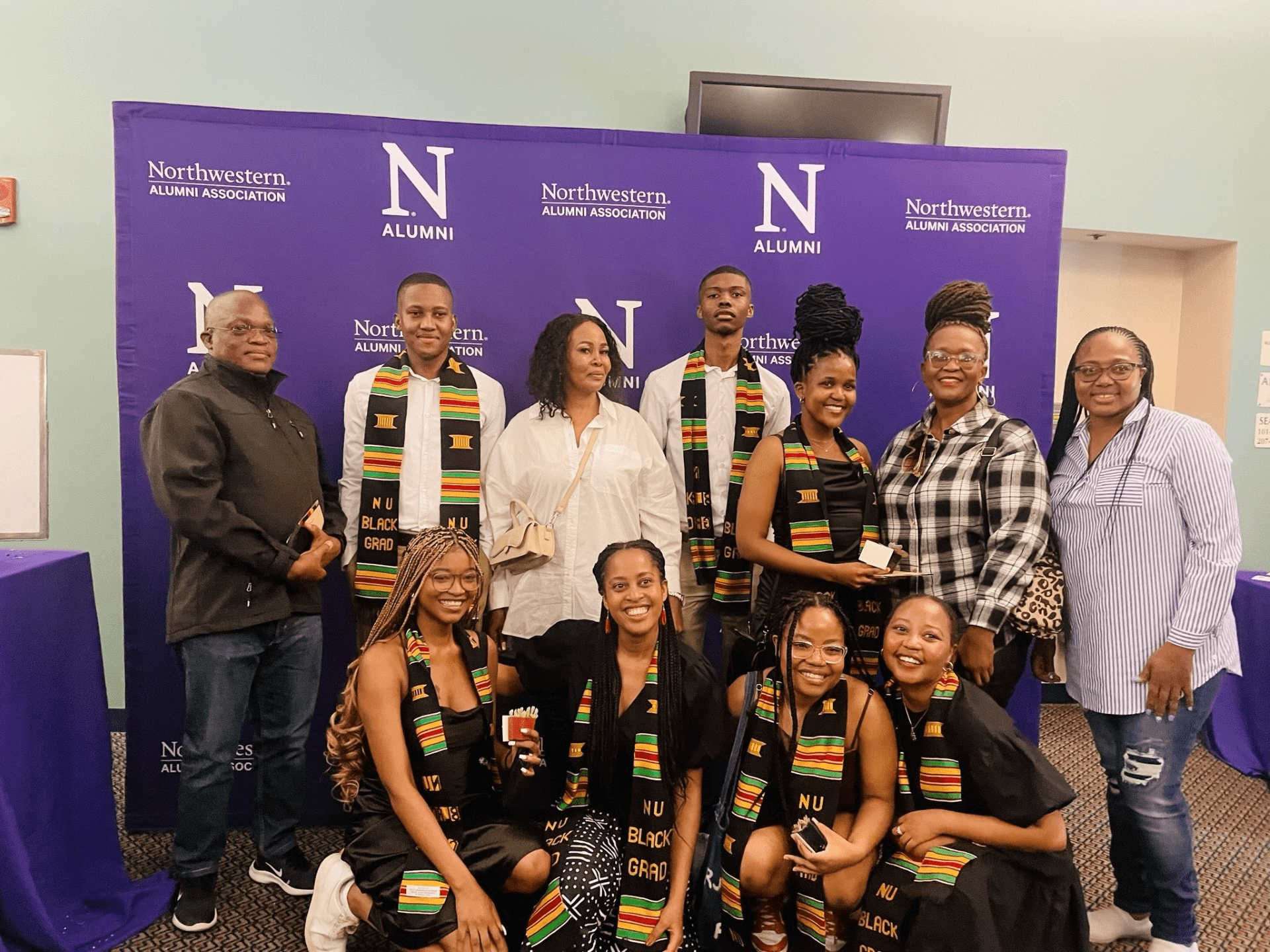
Tebogo pictured during Black Graduation

